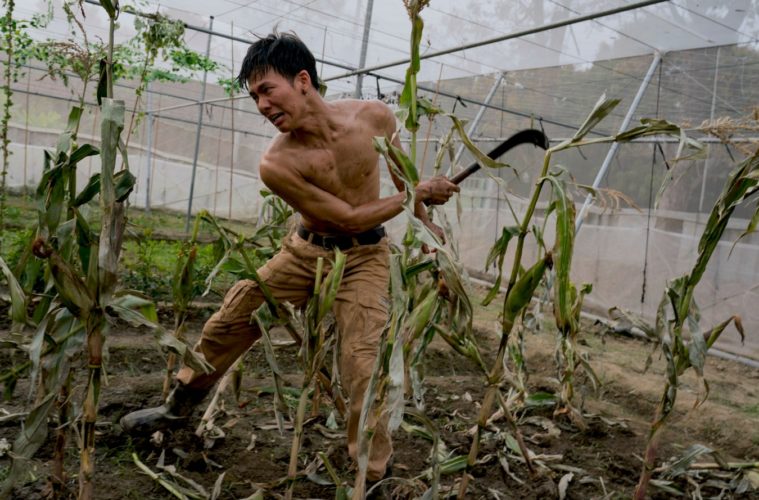There are films you feel glad to have seen for educational reasons, for being informed about aspects of our messed-up world that have so far escaped your attention. And at Busan, the leading film festival of Asia, it feels particularly fitting to learn more about the historical and current concerns of this vast, complicated continent through its film selection. But while you can certainly do that watching the debut narrative feature of Chinese-Malaysian filmmaker Lau Kek Huat and Taiwanese actress/director Vera Chen, the experience itself proves otherwise less than fulfilling.
Boluomi centers around young man Wu Yi-Fan (played by Wu Nien-Hsuan), nicknamed Boluomi after the tropical jackfruit popular in Southeast Asia. Yi-Fan was born in the Malay jungles amidst a decade-long guerilla warfare waged by the communist party. Like many other babies born of this fate, he was sent out of the jungle for safety and raised by a couple of local good Samaritans. Fast forward to his late teens, Yi-Fan could not get into any university in Malaysia for being ethnic Chinese and decided to move to Taiwan to start anew. However, the discrimination didn’t stop there, which he found out on a string of menial jobs where he met other exploited immigrant workers desperately seeking a better life, including single mom Laila (Laila Ulao) from the Philippines.

If that brief synopsis doesn’t make Boluomi sound like a Disney musical, I’d at least done part of my job right. Detailing the everyday hardships faced by the least fortunate and most disenfranchised of society, the film is quite the misery trip. It shows you a war-torn Malaysia where children go through so many families they hardly even flinch anymore when witnessing the demise of their “parents.” It depicts a contemporary Malaysia where racial injustice is so prevalent one can expect to be systematically barred from opportunities despite talent and hard work. It exposes the apathy towards and abuse of vulnerable immigrants prevalent in Taiwan, a hub of relative wealth and supposed liberal-democratic values that gave so many in neighboring countries the false hopes they can no longer afford to forsake. These are all valuable insights for sure. In broader sociopolitical context, the film also illustrates how immigration-related human rights violations are not limited to the western hemisphere, but part of a quiet daily routine in the Far East as well.
Having said that, Boluomi isn’t exactly a triumph in storytelling. The screenplay is too occupied with providing anecdotal information to build up a structure or a hook. The recurring black-and-white flashbacks to the protagonist’s childhood is a nice touch, steadily adding depth and details to this fiercely independent young man we see. But at some point it does start to feel like tragedy overload, where the aggregate effect is not one of emotional impact but fatigue. The capable editing weaves past and present storylines together smoothly enough but can’t do much to salvage the altogether cluttered narrative. The fact that the performances by the committed principal cast never truly compel or that the film is rather unimaginatively shot doesn’t help either.

Now before someone calls me callous and heartless, I will say there are some poignant moments in the film that work cinematically as well. The night before the first adoptive parents of little Yi-Fan gave him back to his birth mother, the Malay-speaking, Allah-worshipping dad comforted the child he bore no blood relation to with simple words of assurance and a smile. It’s a stripped-down scene made of pure kindness that probably touched me more than all the other patently tragic ones. Later in the film, when Laila bade goodbye to a fellow illegal massage parlor worker from Vietnam who got to Taiwan via her dead sister’s ID plus a fake marriage, the tears of the two kindred, stranded souls who can’t even properly communicate with each other also felt achingly real.
This is obviously a very personal project for writer/co-director Lau, who dedicated it to his grandparents. And although I wouldn’t call Boluomi a success in terms of crafting a narrative feature, I applaud his courage and generosity to share such intimate perspectives and observations as a permanent outsider. Stories like this need to be told.
Boluomi screened at the Busan International Film Festival.

